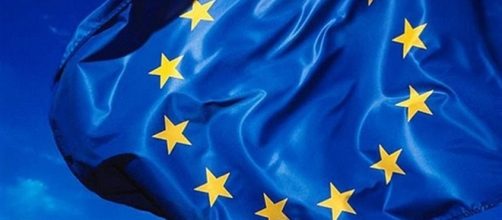On Monday, thirteen countries in the European Union agreed that the European Commission will be the one to negotiate with Russia regarding objections to the new Russian gas pipeline (Nord Stream 2) near Germany, while Berlin strongly opposes this.
Visible division
At an informal discussion of EU energy ministers, German counterparts in the 28-ounce block have pleaded against plans for Russian gas pipeline Nord Stream 2 from the Russian Baltic coast to deliver more gas to Germany. EU members will vote in autumn on the European Commission's request to negotiate with Russia on behalf of the entire Union.
Germany, being the main importer of the pipeline, looks at it as a purely commercial project. Chancellor Angela Merkel said last week that she does not see the Commission having any role in the matter.
There is an obvious division within the European Union as to determine the right amount of business cooperation with Russia. Russia covers one-third of the gas needs in spite of sanctions against Moscow due to military intervention in Ukraine. EU officials are hoping that direct talks with Moscow will postpone the project to 2019, thus leaving the Russian state exporter Gazprom without an advantage when discussing transit fees for Ukraine, the current route for the greater part Gas deliveries to Europe.
Germany, France, and Austria, whose companies are Gazprom partners on this project, did not want to stand up for the booth today. "We had 13 delegations intervening, with all of them being supportive of the Commission's approach," said EC President Maros Sefcovic. "I am definitely optimistic about getting the mandate, but I know this is just the beginning of the debate," Sefcovic added.
The USA is threatening to penalize companies involved
The Commission is supported by the Eastern European, Baltic and Nordic countries and Italy. "Germany has commercial interests, but it needs to explain itself," one EU's senior official claimed. East European and Baltic countries fear that the dependence on Gazprom will grow, and Ukraine will be cut off.
In order for the gas pipeline to move around Ukraine, Italy is concerned about the possible increase in gas prices for customers away from the route. The Nordic countries have their own security reasons why they are against to the gas pipeline passing by their shore below the Baltic Sea, where Russia has strengthened military activities.
Denmark even thinks about amending the law to prohibit gas pipeline projects such as Nord Stream 2 and it welcomed the Commission's intention to subject this project to EU energy policies that prevent energy suppliers from resorting to infrastructure.
Poland, a very loud opponent of Nord Stream 2, urged members to share their views and suspend the issuance of project permits as long as the debate took place.
The Ukrainian foreign minister warns that Nord Stream 2 would have "dangerous consequences" for the European bloc.
Americans are threatening to penalize Western companies involved in the Nord Stream 2 project, including Uniper, Wintershall, Shell, OMV and Engie, as part of the new sanctions against Moscow.


